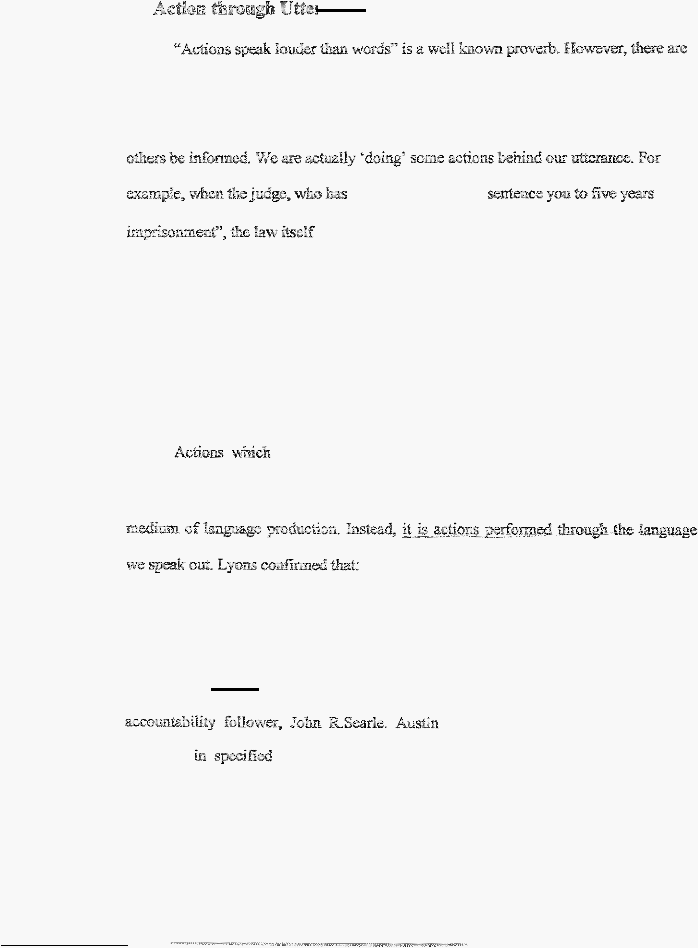
H
c;e;iain circumstances in "'h"'"' 'the
words speak
louder
the actions'. Vv'hen '"'"
scmethi.ng, we &"\0 not m.:mv trnnsfening
our ideas or eJqpre:ssing mrr feelings
ji!St to
the authority, says
is i>: s!lmt!y l:;=ome efficacioi!S before
the convict
is
achl< lly spending
his or
punishment
Similarly
when w-e !.!lter 'happy
birthday', \'lt'e
a>-e engaging en
ac<,ton
of congratulating.
From
those examples,
it is dear enough
through
uttenmc;e, we can impose
octiol'(s).
As suppmted
by Hu.-ford a11d.
Heasley
(1994:232)
that
'
...to a large exrer.tt, speech
i1>
action
and that language
can actually
be
used to do things'.
are
performed
via
Ia!wl!l.l';e
are
generally eaUed i!!lll;;ech
Speech act
dues
not
to !he
met
of
talking
t.'J(JU ;h
literally 'speech'
means
If
should
out, however,
mat it is an u
nfortunate and misleading
ter
nL
of
s!!, it
does
llOt
refeo: t0
the ?£i of
speal.drlg
as
(le. to
the
m1
acmei
spoken
bttt as
we sfuill see,
to
more abstract Speeeh
not
restricted to OOnL'TiooiC3lions by means
!&"tg<.mge (1979:726)
of
trjs
study
was
J.L
Attstin,
ili.e
Britis..'J
philosopher
tirod
his
observed
that
the
utterance
of
some
sentences,
circumst&"!.ces, can
treated
as
t!>.e
perform!U!OO
an
act
(Brow11&Yule,
231).
He pointed
out
even decl<Lrative sentences
as ''Tire
mee!ing is
called
ro
order'' or
"Tiris
c.'J:.ut
is
now i..'l session"
are
not inlten.ded
to
be